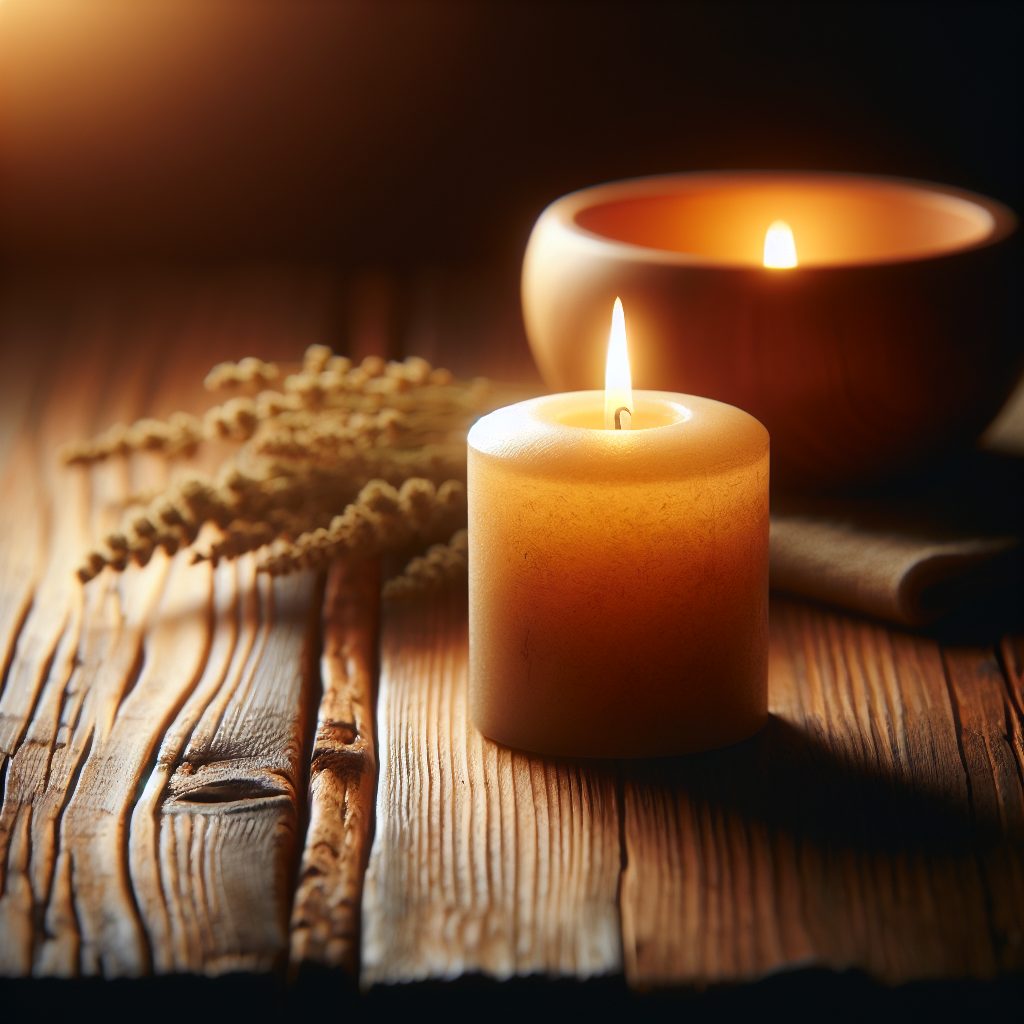If you’re searching for natural ways to soothe your mind and find relief from anxiety, you might be curious about the effectiveness of herbal supplements. In a world filled with stress and uncertainty, many people are turning to alternative remedies to promote relaxation and peace. But are there specific herbal supplements tailored specifically for relaxation and anxiety? In this article, we will explore the world of herbal supplements and their potential benefits in calming your mind and managing anxiety. Discover the power of nature’s remedies and how they may bring tranquility into your life.

Types of Herbal Supplements
When it comes to herbal supplements, there are various types that can be beneficial for relaxation and anxiety. These supplements can work by supporting your body’s natural response to stress, calming the mind, and promoting a sense of relaxation. Some common types of herbal supplements in this category include adaptogens, nervines, and anxiolytics.
Adaptogens
Adaptogens are a specific type of herbal supplement that helps your body adapt to stress. They are known for their ability to increase resistance to physical, chemical, and biological stressors. These herbs work by strengthening the body’s response to stress and promoting a sense of balance and resilience. Some popular adaptogens that can aid in relaxation and anxiety include Ashwagandha and Rhodiola Rosea.
Nervines
Nervines are another type of herbal supplement that specifically targets the nervous system. They have a calming effect and help to soothe frazzled nerves. Nervines can be further categorized into two subcategories – relaxant nervines and tonic nervines. Relaxant nervines, such as Valerian Root and Chamomile, promote relaxation and help to ease anxiety symptoms. On the other hand, tonic nervines, like Ginkgo Biloba and Lemon Balm, nourish and strengthen the nervous system, providing long-term support for relaxation.
Anxiolytics
Anxiolytics are herbal supplements that specifically target anxiety. They work by reducing excessive anxiety and promoting a sense of calmness and tranquility. Anxiolytics can help to relieve the symptoms associated with anxiety disorders, such as excessive worry, restlessness, and insomnia. Some common anxiolytics include Passionflower, Lavender, and Kava.
Popular Herbal Supplements for Relaxation and Anxiety
Now let’s take a closer look at some of the most popular herbal supplements that are widely used for relaxation and anxiety relief. These supplements have gained popularity due to their potential benefits and positive effects on promoting relaxation and reducing anxiety symptoms.
Ashwagandha
Ashwagandha, also known as Withania somnifera, is an adaptogenic herb that has been used for centuries in traditional Ayurvedic medicine. It is prized for its ability to reduce stress, improve sleep quality, and promote a sense of calmness. Ashwagandha works by regulating the stress hormone cortisol and supporting the body’s stress response. It can be taken in capsule, powder, or liquid form.
Valerian Root
Valerian Root is a well-known herb that has been used for centuries to promote relaxation and improve sleep. It is often used as a natural alternative to prescription sleep aids and anti-anxiety medications. Valerian Root works by increasing the levels of the neurotransmitter gamma-aminobutyric acid (GABA) in the brain, which promotes a calming effect. It is available in capsule, tablet, or tincture form.
Chamomile
Chamomile is a gentle herb that is often consumed as a tea to relax and unwind. It has been used for centuries as a natural remedy for anxiety, insomnia, and digestive issues. Chamomile contains compounds that bind to the same receptors in the brain as benzodiazepines, a class of anti-anxiety medications. This interaction helps to reduce anxiety and promote relaxation. Chamomile tea is widely available and can be enjoyed throughout the day.
Passionflower
Passionflower, also known as Passiflora incarnata, is a beautiful flowering plant that has been traditionally used for its sedative and calming effects. It can help to reduce anxiety, promote sleep, and alleviate nervous restlessness. Passionflower works by increasing the levels of GABA in the brain, similar to Valerian Root. It is available in capsule, tablet, tincture, or tea form.
Lavender
Lavender is widely known for its calming and soothing properties. Inhaling the aroma of lavender essential oil has been shown to reduce anxiety and improve mood. It can also promote better sleep quality and relaxation. Lavender essential oil can be used in aromatherapy diffusers, added to bathwater, or applied topically (diluted with a carrier oil) for a relaxing massage.
Lemon Balm
Lemon Balm, also known as Melissa officinalis, is a herb that belongs to the mint family. It has a refreshing lemony scent and is commonly used to promote relaxation and ease anxiety. Lemon Balm works by increasing GABA levels in the brain, similar to Valerian Root and Passionflower. It is available in capsule, tea, tincture, or essential oil form.
Kava
Kava, also known as Piper methysticum, is a plant native to the South Pacific. It has been used for centuries as a ceremonial drink to promote relaxation and social interaction. Kava contains compounds called kavalactones, which have been shown to have anxiolytic and muscle-relaxing effects. It is available in powder, capsule, tea, or tincture form.
Rhodiola Rosea
Rhodiola Rosea is an adaptogenic herb that has been used for centuries in traditional medicine to combat stress and fatigue. It can help to improve mood, reduce anxiety, and increase energy levels. Rhodiola Rosea works by regulating the stress hormone cortisol and boosting the production of feel-good neurotransmitters like serotonin and dopamine. It is available in capsule or tincture form.
Ginkgo Biloba
Ginkgo Biloba is a popular herbal supplement and is commonly used to support cognitive function and promote a sense of calmness. It is known for its antioxidant properties and ability to improve blood flow to the brain. Ginkgo Biloba can help to reduce anxiety and enhance mental well-being. It is available in capsule, tablet, or tincture form.
St. John’s Wort
St. John’s Wort is a herb that has been used for centuries to treat various mental health conditions, including anxiety and depression. It is believed to work by increasing the levels of serotonin, a neurotransmitter that is involved in mood regulation. St. John’s Wort is available in capsule, tablet, or tincture form.

Effectiveness and Research
When it comes to herbal supplements, it is important to consider both scientific studies and user experiences to understand their effectiveness in promoting relaxation and reducing anxiety.
Scientific Studies
Scientific studies have been conducted to evaluate the efficacy of herbal supplements for relaxation and anxiety. Some studies have shown positive results, indicating that certain herbs, such as Ashwagandha, Valerian Root, and Passionflower, can help to reduce anxiety symptoms and promote relaxation. However, it is important to note that more research is needed to fully understand the effectiveness of these herbs and their optimal dosage.
User Experiences
User experiences can also provide valuable insights into the effectiveness of herbal supplements for relaxation and anxiety. Many individuals have reported positive outcomes after incorporating herbal supplements into their wellness routines. However, it is important to remember that everyone’s experience may vary, and what works for one person may not work for another. It is always advisable to consult with a healthcare professional before starting any new supplement regimen.
Dosage and Administration
To ensure the safe and effective use of herbal supplements, it is important to follow recommended dosages and methods of administration.
Recommended Dosages
Recommended dosages vary depending on the specific herbal supplement and the desired effect. It is important to carefully read the product labels and follow the recommended dosages provided by the manufacturer. Starting with the lowest effective dose and gradually increasing if needed is often recommended. Consult with a healthcare professional for personalized dosage recommendations based on your individual needs.
Methods of Administration
Herbal supplements can be taken in various forms, including capsules, tablets, powders, teas, tinctures, and essential oils. Each form has its own unique advantages and considerations. Capsules and tablets provide convenience and standardized dosages, while teas and tinctures offer a more traditional and customizable approach. Essential oils can be used for aromatherapy or diluted for topical application. Choose the method of administration that suits your preferences and consult with a healthcare professional for guidance.

Potential Side Effects and Precautions
While herbal supplements are generally considered safe when used appropriately, it is important to be aware of potential side effects and precautions before starting any new supplement regimen.
Drug Interactions
Some herbal supplements may interact with certain medications, including prescription drugs and over-the-counter medications. These interactions can reduce the effectiveness of medications or increase the risk of side effects. It is crucial to inform your healthcare professional about all the medications and supplements you are taking to avoid any potential interactions.
Allergic Reactions
Individuals may have allergic reactions to certain herbs or substances present in herbal supplements. It is important to carefully read the ingredient labels and discontinue use if any allergic reactions, such as skin rashes, itching, or difficulty breathing, occur. If you have known allergies, consult with a healthcare professional before starting any new herbal supplement.
Pregnancy and Breastfeeding
Pregnant or breastfeeding individuals should exercise caution when considering herbal supplements. Some herbs may not be safe for use during pregnancy or breastfeeding, as they can potentially harm the developing fetus or infant. It is crucial to consult with a healthcare professional before taking any herbal supplements during these periods.
Liver Toxicity
Certain herbal supplements, such as Kava and St. John’s Wort, have been associated with rare cases of liver toxicity. These cases are often attributed to excessive or prolonged use of these herbs. It is important to use these herbs in moderation and follow recommended dosages. If you experience symptoms such as jaundice, abdominal pain, or dark urine, discontinue use and seek medical attention immediately.
Consulting with a Healthcare Professional
Before starting any herbal supplement regimen for relaxation and anxiety, it is highly recommended to consult with a healthcare professional. They can provide professional advice and guidance based on your individual needs and health conditions.
Professional Advice
A healthcare professional, such as a naturopathic doctor, herbalist, or integrative medicine practitioner, can provide valuable insights and recommendations regarding the selection, dosage, and safety of herbal supplements. They can also consider any specific health concerns or medications you may be taking to ensure compatibility and minimize potential side effects.
Safety and Individualized Recommendations
A healthcare professional can also help ensure the safe use of herbal supplements by assessing your overall health, identifying any potential contraindications, and providing individualized recommendations tailored to your specific needs. They can monitor your progress and make adjustments to your supplement regimen as necessary.
Combining Herbal Supplements with Therapy
Herbal supplements can be a valuable addition to other relaxation and anxiety management techniques, such as counseling or therapy.
Counseling or Therapy
Counseling or therapy sessions with a qualified professional can provide valuable support and guidance in managing anxiety. Combining herbal supplements with therapy can enhance the overall effectiveness of your anxiety management approach. Discuss your supplement regimen with your therapist or counselor to ensure coordination and integration of treatment strategies.
Mindfulness and Meditation
Practicing mindfulness and meditation techniques can help to reduce stress and promote relaxation. When used in conjunction with herbal supplements, these techniques can further enhance your ability to manage anxiety. Incorporate mindfulness and meditation into your daily routine and explore different techniques that resonate with you.
Alternative Non-Herbal Supplements and Techniques
In addition to herbal supplements, there are alternative non-herbal supplements and techniques that can also aid in relaxation and anxiety management.
Exercise
Regular physical exercise has been shown to have numerous benefits for mental health, including reducing anxiety and promoting relaxation. Engage in activities that you enjoy, such as walking, jogging, yoga, or dancing, to incorporate exercise into your routine. Consult with a healthcare professional before starting any new exercise program.
Breathing Techniques
Deep breathing exercises can help to calm the mind and reduce anxiety. Techniques such as diaphragmatic breathing and box breathing can be practiced anywhere, anytime, and can provide immediate relief during moments of stress or anxiety. Explore different breathing techniques and find one that works best for you.
Aromatherapy
Aromatherapy involves using essential oils to promote relaxation and overall well-being. Essential oils, such as lavender, chamomile, and bergamot, can be diffused, inhaled, or applied topically (diluted with a carrier oil) to provide calming effects. Experiment with different essential oils and find scents that evoke a sense of relaxation and tranquility for you.
Conclusion
When it comes to relaxation and anxiety management, herbal supplements can be a valuable tool in your holistic wellness approach. Adaptogens, nervines, and anxiolytics are different types of herbal supplements that target stress response, promote relaxation, and reduce anxiety symptoms. Popular herbal supplements for relaxation and anxiety include Ashwagandha, Valerian Root, Chamomile, Passionflower, Lavender, Lemon Balm, Kava, Rhodiola Rosea, Ginkgo Biloba, and St. John’s Wort.
To ensure safe and effective use, it is important to follow recommended dosages and methods of administration. Consider scientific studies and user experiences to evaluate effectiveness. Be aware of potential side effects and precautions, including drug interactions, allergic reactions, pregnancy and breastfeeding considerations, and the rare risk of liver toxicity. Consulting with a healthcare professional is highly recommended to receive professional advice, individualized recommendations, and ensure coordination with other therapies or techniques.
Remember, herbal supplements are not a replacement for professional medical advice or prescribed medications. They can be used in conjunction with therapy, mindfulness and meditation techniques, exercise, breathing techniques, and aromatherapy to provide a comprehensive approach to relaxation and anxiety management. Find the combination of techniques that works best for you and prioritize your mental well-being.
